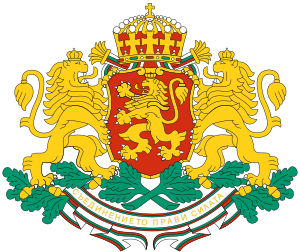Greece, is going to grant for 600 thousand citizenship, for the northern epiriotes
Greece accelerates Greek citizenship award to procedures
But the biggest opportunity is to make the procedure in Greek consulates
The false data from the Census in Albania, are forcing Athens, to correct errors in its national affairs
The practice of obtaining acceptance by the Greeks in Northern Epirus, will last up to 4 months.
The official estimates of the Census in Albania, apparently, has forced Athens, put in place,
going to Plan B to its foreign national policy, to grant citizenship to all Hellenic
Community of Northern Epirus (Greek passports) mostly through from three Greek
consulates in Albania.
The decision is taken, after Athens, has
used all diplomatic sources to have to Tirana, the same wavelength,
particularly in geopolitical matters, particularly to give citizenship to Albanians in Kosovo and Skopje by the Albanian Government inside sic months. In his
statement, the Greek Interior Ministry, that Tirana,
continues to show towards Greece, feeling not sincere cooperation,
while simultaneously calling for the right to self-determination of the
Greek community in Albania.
Provision for Hellenic Greek citizenship
of Albania, is thought be given in a shorter time, which will also be
used as self declaration of its community (census of Greeks) in Albania.
The approximate number of Greek citizenship in Albania, thought to be
around 600 thousand, where only Albanians who have applied, are about
100 thousand.
Giving the tow citizenship for Greeks in
Albania, was approved by the Government of Karamanlis on October 2006,
but the Greek foreign national Commission, had blocked, since Albania,
would hold free census process for the Greek community.
Related:
Thursday, June 14, 2007

Photo: "Shekulli"
Nickolas Gage: "In Albania live abou 600 thousand ethnic greeks"
The declarate of the Head of Pan Epiriotic of World Organisation, is made in Occasion of 35 Pan Epiriotic Convention which is making in Boston, USA.
"The albanian Governament does not make the General Counting Population because has afraid about individual declarate in which every albanian citizen must claim his identity. According to Albanian Authorities, the greeks in albania, are 1.17% of total popullation, while the Greek Organisations said for about 25% (togather with vllahes greek Community)
The Greek Governament according to statistics of Prime Minister Venizelos on Peace Concerence in Paris 1919, has declared for about 150 thousand, while seeing acctualy the raise of albanian statistic population makes between 550 to 600 thousand greek who live in Albania and Greece (emigrant). The greek governament it self has the statistics based also to his decision last year for given the greek citizenship to albanian emigrants, who like greek heritage togather with greek omogenes, a total numebr of 700 thousand who live in Greece and Albania (Northern Epirus)
According to CIA factbook in 1989, the ethnik greeks of albania are between 3% (albanian statistics) to 12% (greek organisations) a total population about 3.2 million from census statistics of state dictature. Annwyaw a large orthodoxes in albania (30% albanian population) must declare their old epiriotean origin.







 The
new World Council of Greeks Abroad (SAE) is being organized. The draft
laws are prepared and entering officially, from now until Jan. 31 for
public consultation. All Greeks abroad have the opportunity to share
their suggestions and ideas through the website OPEN GOVERNMENT
(DIAYGEIA) through the Ministry of Administrative Reform and
E-Governance.
The
new World Council of Greeks Abroad (SAE) is being organized. The draft
laws are prepared and entering officially, from now until Jan. 31 for
public consultation. All Greeks abroad have the opportunity to share
their suggestions and ideas through the website OPEN GOVERNMENT
(DIAYGEIA) through the Ministry of Administrative Reform and
E-Governance.
















